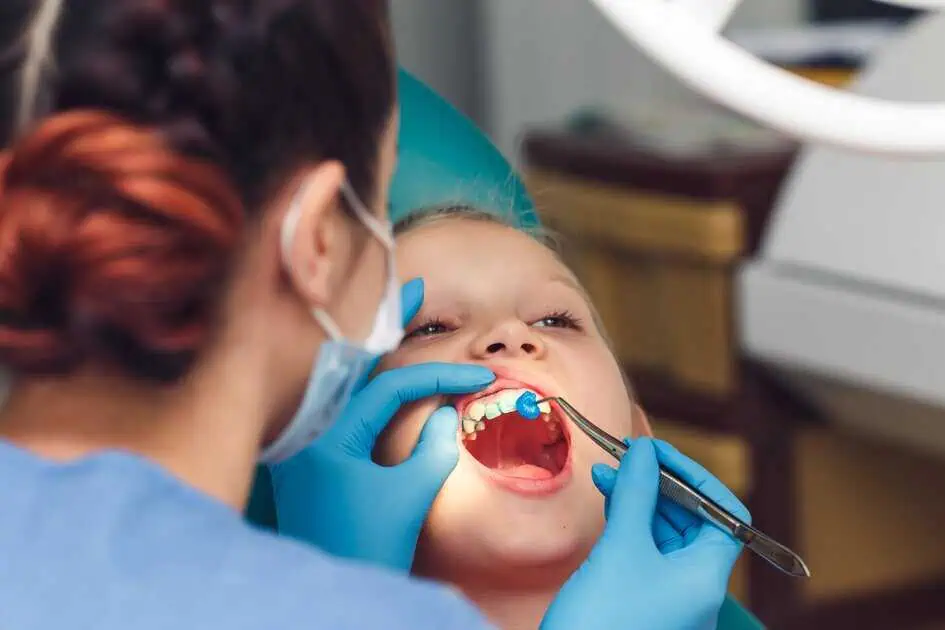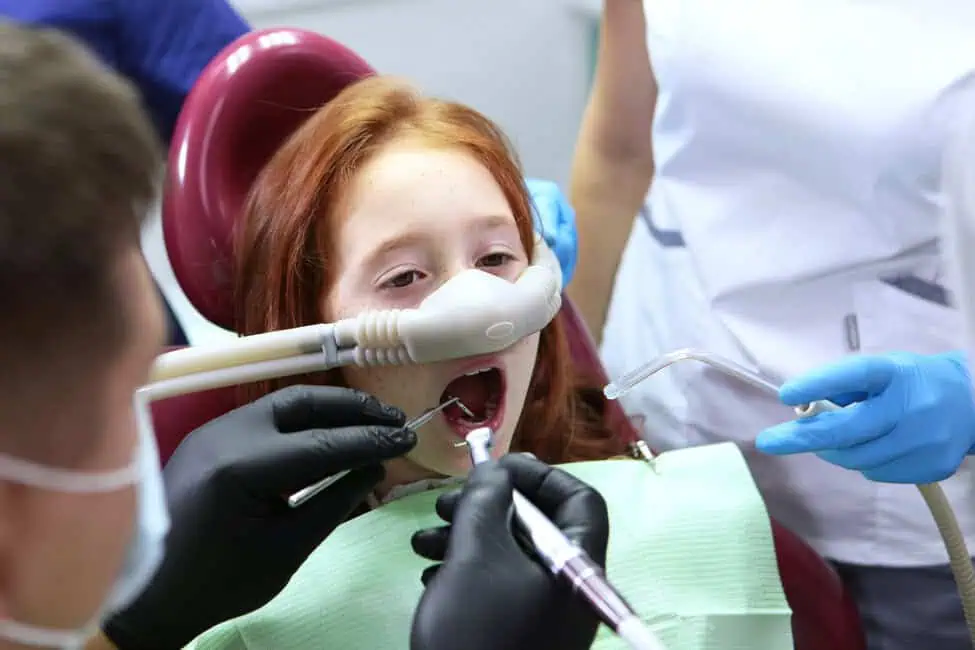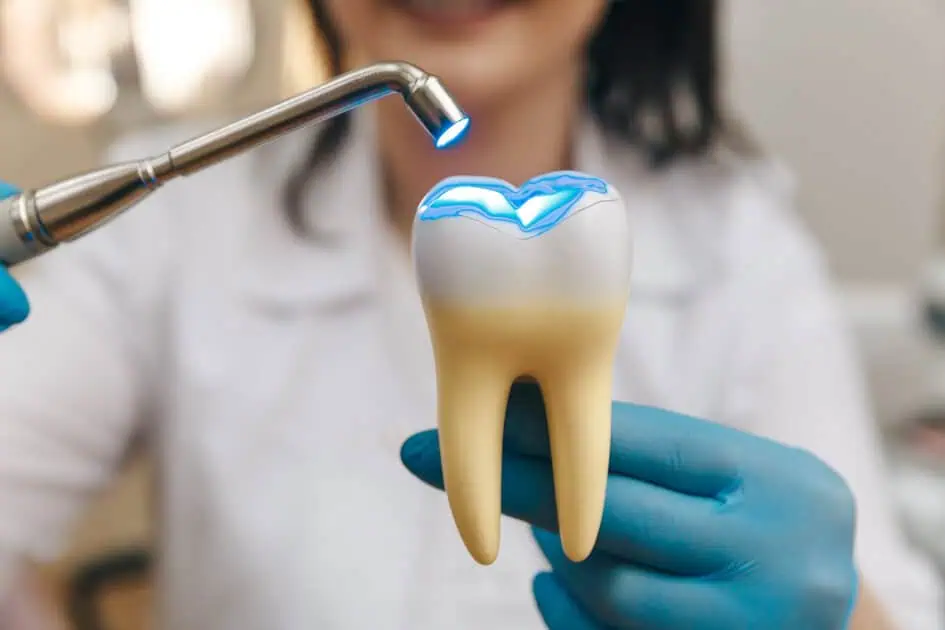Good oral hygiene is crucial for children’s overall health and well-being. Parents must establish proper dental care habits early to ensure their child maintains healthy smiles. This ultimate guide will provide comprehensive tips, tricks, and techniques to make teeth cleaning a breeze. Let’s dive in!
The Importance of Teeth Cleaning
A. Understanding the significance of oral hygiene in children
Dental hygiene plays a vital role in children’s overall health. Regular brushing and flossing remove plaque, preventing tooth decay, gum disease, and bad breath. Maintaining good oral health in childhood establishes a foundation for lifelong dental care habits.
B. The link between oral health and overall well-being
Oral health is connected to general health. Poor oral hygiene can lead to infections, pain, difficulty eating, and even impact a child’s self-esteem. Furthermore, studies have linked gum disease in children to an increased risk of cardiovascular disease and other systemic health issues later in life.
C. Preventing dental issues in the future
Establishing proper dental care habits early can prevent common dental problems, including cavities, gum disease, and tooth loss. Regular teeth cleaning and dental visits help identify and address any issues promptly, ensuring optimal oral health and reducing the need for extensive treatments in the future.
When to Start Dental Care for Your Child
A. The appropriate age for introducing oral hygiene routines
Dental care should begin even before your child’s first tooth emerges. Wiping your baby’s gums gently with a clean, damp cloth after feeding helps remove bacteria and prevents potential infections. When the first tooth appears, typically around six months, use a toothbrush.
B. Guidance for parents with infants
: use a small, soft-bristled toothbrush or a finger toothbrush designed for babies. Brush your baby’s teeth gently using water or a smear of fluoride toothpaste, about the size of a grain of rice. Gradually increase the amount of toothpaste to a pea-sized portion once your child turns three years old.
C. Transitioning to independent dental care as your child grows
As your child grows, encourage them to participate in dental care actively. Teach them how to hold the toothbrush correctly and guide them through the proper brushing technique. Supervise their brushing and guide them as needed as they become more proficient.
Choosing the Right Dental Products
A. Selecting an age-appropriate toothbrush
When choosing a toothbrush for your child, look for one with soft bristles and a small head that fits comfortably in their mouth. Opt for toothbrushes designed specifically for children, featuring colorful designs or their favorite characters. Replacing the toothbrush every three to four months or sooner if the bristles become frayed is essential.
B. Importance of fluoride toothpaste and the recommended amount
Fluoride toothpaste is crucial for protecting your child’s teeth against cavities. Use a pea-sized amount of fluoride toothpaste for children aged three and above. For children under three, use a smear of toothpaste, and make sure they spit out the excess after brushing to avoid swallowing too much fluoride.
C. Additional dental tools: floss, mouthwash, and interdental cleaners.
Introduce flossing as soon as your child’s teeth start touching. Use child-friendly floss picks or floss holders to make the process easier. Mouthwash is generally not recommended for young children, but your pediatric dentist may recommend a fluoride mouth rinse for older children at high risk of cavities. Interdental cleaners, such as interdental brushes, can be used for children with wider spaces between their teeth.
Step-by-Step Guide to Proper Pediatric Teeth Cleaning
A. Establishing a regular teeth cleaning routine
Set a consistent schedule for teeth cleaning, ideally twice a day. Create a routine that incorporates brushing in the morning and before bedtime to make it a habit. Consistency is key to maintaining good oral hygiene.
B. Techniques for brushing your child’s teeth effectively
- Choosing the correct toothbrushing motion: Use gentle circular or back-and-forth motions to clean all tooth surfaces, including the front, back, and chewing surfaces.
- Duration and frequency of brushing sessions: Brush for a full two minutes each time to ensure thorough cleaning. Consider using a timer or playing a favorite song to make brushing more fun.
- Paying attention to all tooth surfaces: Place the toothbrush at a 45-degree angle and clean the gumline, the outer and inner surfaces of the teeth, and the chewing surfaces.
C. Introducing flossing and teaching proper technique.
When your child’s teeth begin to touch, start flossing for them. As they grow, teach them to use child-friendly floss picks or holders. Show them the proper technique of gently guiding the floss between the teeth and moving it up and down to remove plaque and food particles.
D. Incorporating mouthwash into your child’s routine
Consult with your pediatric dentist before introducing mouthwash. Choose an alcohol-free, fluoride mouth rinse formulated explicitly for children if recommended. Instruct your child to swish the mouthwash for the recommended duration and ensure they don’t swallow it.
Encouraging Positive Dental Care Habits
A. Making teeth cleaning enjoyable
Choose toothbrushes and toothpaste flavors that appeal to your child’s preferences. Consider using toothbrushes with timers or playing their favorite songs during brushing sessions. Turn teeth cleaning into a playful activity to make it more enjoyable for your child.
B. Leading by example: showcasing good oral hygiene habits
Children often mimic their parent’s behaviors. Brush your teeth alongside your child, demonstrating the proper techniques and emphasizing the importance of oral hygiene. Let them see that oral care is a routine for everyone in the family.
C. Offering rewards and praise for consistent dental care efforts
Positive reinforcement goes a long way in motivating children. Offer small rewards for consistent teeth cleaning, such as stickers or a unique activity. Praise their efforts and achievements, highlighting the importance of maintaining good oral hygiene.
Overcoming Common Challenges in Teeth Cleaning
A. Dealing with resistance and establishing trust
Some children may resist teeth cleaning. Patience and understanding are essential. Communicate with your child, explaining why oral hygiene is necessary and addressing any fears or concerns they may have. Establish trust by making teeth cleaning a positive and supportive experience.
B. Handling teething and sensitive gums
Teething can be uncomfortable for children, making teeth cleaning challenging. Use a soft-bristled toothbrush or a clean, damp cloth to clean their teeth and gums gently. Consult your pediatric dentist for additional recommendations to alleviate teething discomfort.
C. Addressing fear or anxiety about dental visits
Dental anxiety is common in children. Prepare your child for dental visits by explaining what to expect and emphasizing the importance of regular check-ups. Choose a pediatric dentist specializing in treating children, creating a welcoming and friendly environment.
D. Strategies for managing children with braces or orthodontic appliances
Children with braces or orthodontic appliances require extra care. Ensure they brush and floss diligently, using special orthodontic toothbrushes and threaders. Encourage them to maintain regular dental visits to adjust and monitor their orthodontic treatment.
Professional Dental Care and Regular Check-ups
A. Importance of regular dental visits for children
Regular dental visits are vital for maintaining optimal oral health. Pediatric dentists can identify and address dental issues early, provide preventive treatments, and offer guidance on oral care techniques. Aim for biannual check-ups or as recommended by your dentist.
B. Finding a pediatric dentist and preparing for the first visit
Seek a pediatric dentist who specializes in treating children. Research recommendations and read reviews to find a dentist who creates a positive and comfortable experience for children. Prepare your child for the first visit by reassuringly explaining the process.
C. Understanding common dental treatments for children
Understand the purpose and benefits of these treatments to make informed decisions about your child’s dental care.
D. Managing dental emergencies
Knocked-out tooth or severe toothache may happen. Be prepared by having your pediatric dentist’s contact information readily available. Follow their guidance on immediate steps to take and seek prompt dental care.
Nutrition and Its Impact on Oral Health
A. The role of diet in maintaining healthy teeth
Proper nutrition plays a significant role in oral health. A well-balanced diet of fruits, vegetables, whole grains, and lean proteins provides essential nutrients for healthy teeth and gums.
B. Foods and beverages that promote good oral health
Encourage your child to consume foods that support dental health, such as crunchy fruits and vegetables, dairy products, and water. Limit sugary snacks and drinks, as they can contribute to tooth decay.
C. Limiting sugary snacks and drinks
Sugar fuels the growth of harmful bacteria in the mouth, leading to tooth decay. Limit your child’s consumption of sugary snacks, candies, sodas, and juices. Encourage them to choose healthier alternatives.
D. Encouraging a balanced diet for overall oral well-being
Emphasize the importance of a balanced diet for overall health and oral well-being. Teach your child the connection between their food choices and teeth, instilling healthy eating habits that benefit their overall health.
Conclusion
Prioritizing effective teeth cleaning is paramount for the overall well-being of your child. By following the comprehensive tips, tricks, and techniques provided in this ultimate guide, you can establish a solid foundation for your child’s oral health. Remember, at Solomon Kids Dentistry, we support you in maintaining your child’s healthy smile. Our team of well-experienced pediatric dentists is dedicated to providing gentle and compassionate dental care for children of all ages. Together, we can ensure that your child develops excellent dental habits, receives regular check-ups, and receives necessary treatments with the utmost care. Invest in your child’s oral health today for a lifetime of confident smiles and optimal oral health.





